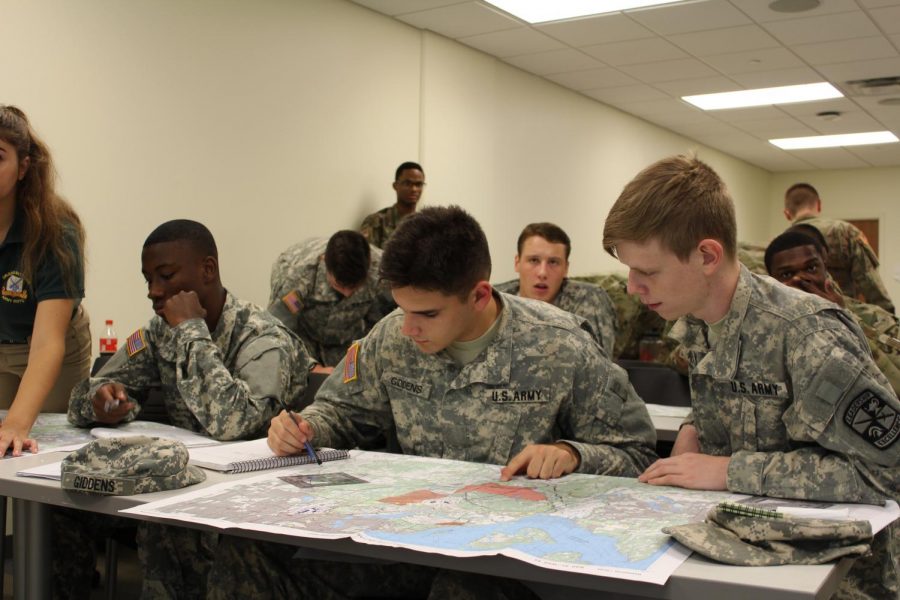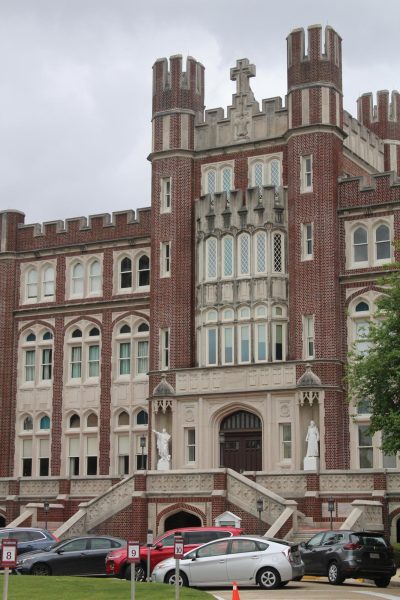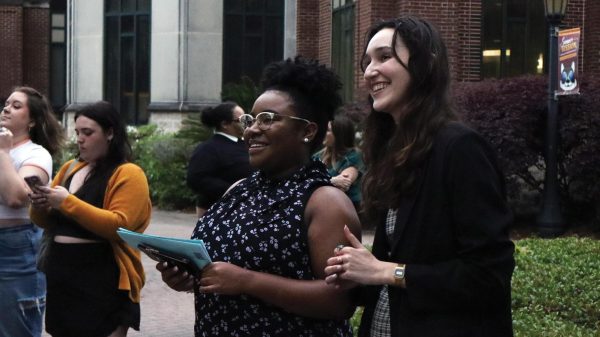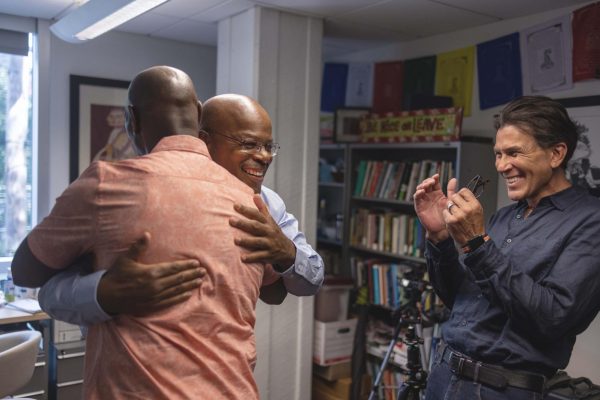Military trains students for school and Army
Ethan Giddens, psychological science freshman, plots points on a map in the land navigation lab on Tulane’s campus. College students throughout the city travel to Tulane to participate in ROTC.
October 3, 2019
By the time the clock hits 5:45 a.m., John Arrieta, accounting senior, is up and moving. Forming up for physical training, held in the early hours of the morning three times a week outside the Tulane University gymnasium, Arrieta prepares for the various workouts that the training brings.
Arrieta is a member of the Orleans Battalion chapter of the Reserve Officer Training Corps, a national college program that prepares students to enter the military after graduation. The Orleans Battalion meets on Tulane’s campus, but invites students from eight colleges within New Orleans, including Loyola, to join.
“We are developing future competent leaders that are ready to lead our nation’s soldiers into combat,” Arrieta said. “Time management, good leadership style and, above all, having a good character. That is number one. Everything else will fall into place.”
Training students to work as disciplined, ethical and moral citizens is ROTC’s goal in preparing students to succeed as future Army members, Arrieta said. Students involved in the program dedicate roughly 10 hours a week to development and training.
Between the time commitment of the ROTC program and a course load dedicated to accounting and business analytics, Arrieta has balanced his military and school dedications since his freshman year. On top of the corps and his school work, Arrieta said he also worked around 40 hours a week last year at the College of Business computer lab and the Boot Store. He said the combination of work was “killer,” and called for a readjustment of his priorities.
“I do feel overwhelmed at times, especially being a senior,” Arrieta said. “I sacrificed school time and free time. School comes first, then ROTC, then everything else falls into place.”
As a senior, Arrieta has additional responsibilities in the corps.
As a mentor to the younger cadets, Arrieta oversees weekly labs that teach topics varying from learning to read a map with a protractor and compass, to navigation in the field, he said.
“Juniors and seniors take charge remedial physical training, and help people that need individual physical attention to improve their performance,” Arrieta said. “If somebody is doing bad or poorly or bad on physical training, we make sure to assist them. That way, we make sure their scores go up on their next test.”
The emphasis on camaraderie among the corps is something Arrieta feels has shaped his outlook and approach to the world.
“It’s a very good leadership experience and opportunity and it has defined my leadership style,” Arrieta said. “It has also taught me time management skills, as it has taught me to handle the millions of things I have to do.”
Arrieta also believes that a personal tie has lead to his dedication to the corps.
“My dad served in the Marine Corps ’81-’83, did a tour in Lebanon and he’s been my biggest inspiration to join the military,” Arrieta said. “I am very proud to eventually serve (my country) for real, it’s something I’ve wanted to do since I was little, partly because of my dad serving in the Marine’s but partly because I love the (United States), and I’ve gotta show it back by serving for it.”
And while some may assume the combination of Tulane and Loyola students in a military setting would lead to competition, Arrieta said he believes the program brings the students together.
“It’s very community-oriented, it doesn’t matter what school you go to as long as you’re proficient and competent,” Arrieta said. “We are all going to be officers one day, we are all going to be serving so where you go to school does not matter. As long as you’ve got good character and work ethic, anyone would be able to able to succeed in ROTC.”


















